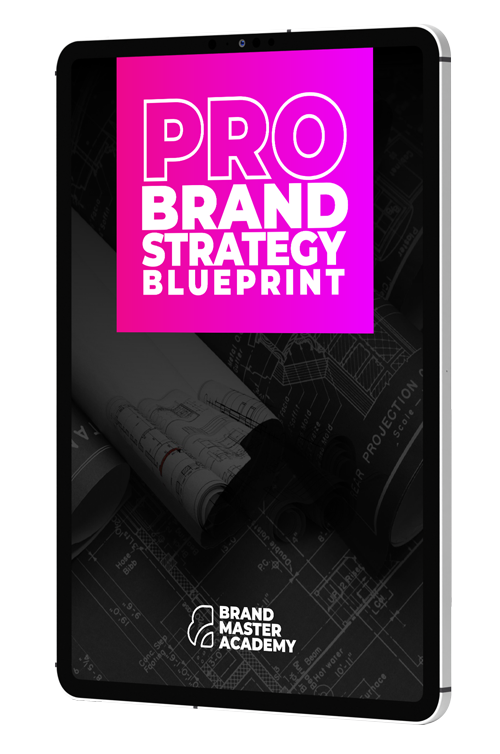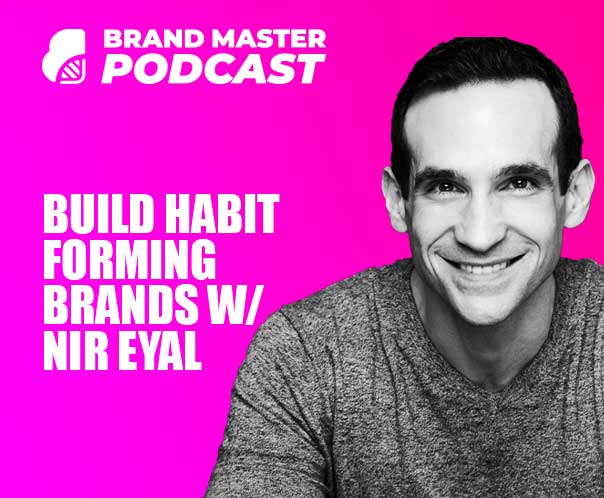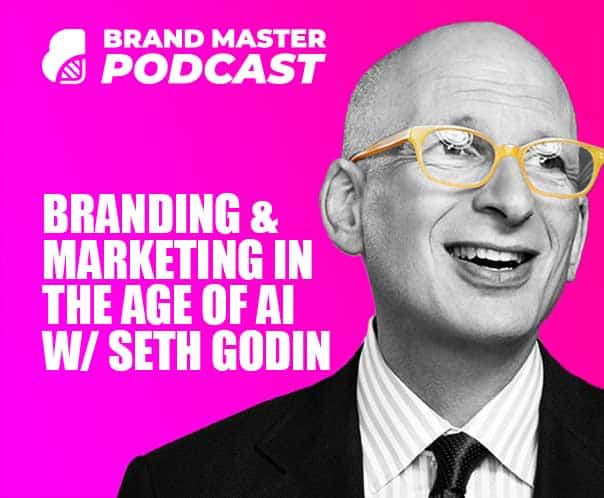We delve into the realm of brand enhancement with our special guest, Kyle Roof, co-founder of High Voltage SEO and a trailblazer in the field of AI-driven SEO.
Kyle's reputation is founded on his pioneering scientific testing methodology, which involves an extensive series of SEO experiments aimed at deciphering the enigmatic algorithms behind Google's ranking system.
Notably, Kyle's innovative approach not only led him to secure a coveted US patent, but also garnered attention for his revelation of algorithmic secrets that even captured Google's notice.
In this engaging conversation, we delve into
Kyle's science-driven SEO and his insights into Google's algorithm.
The future of AI SEO and perspectives on tools like GPT vs. Surfer.
Advanced SEO tactics, and contemporary strategies for keyword research.
12-month strategy Kyle would use right now for a new website.
For anyone seeking wisdom from a distinguished SEO expert who has boldly challenged conventions and reshaped the very foundations of the industry then this article is right for you.
Exploring Evolution In SEO

Stephen
It's evident that both you and I share a genuine enthusiasm for the subject we're about to delve into.
Personally, I've been immersing myself in the world of SEO for a considerable number of years, a time when prominent figures like Brian Dean and Neil Patel were at the forefront of the SEO scene.
However, what's striking is the dynamic shifts occurring within this landscape, prompting my keen interest.
Before we begin unpacking the intricacies, would you mind providing our audience with a concise background detailing your journey to your current standing in the realm of SEO?

Kyle Roof
In a nutshell, my journey began as a lawyer, specifically a trial attorney handling cases involving divorce, custody, support, and criminal defense.
Starting right out of university and transitioning into law school meant I was only 24 when I began practicing law.
Standing in the courtroom surrounded by colleagues in their fifties and sixties, I realized that this path might define the next several decades of my life, and the prospect seemed quite bleak.
The emotional toll was real, despite the seemingly glamorous image of a lawyer's life.
Feeling the need for a change, I took a bold step and embarked on a year-long hiatus in South Korea to teach English, a complete shift from my legal career.
During this time, I found myself partnering with a Korean entrepreneur and requiring a sophisticated website for our business venture.
This marked the beginning of a new chapter as I rallied a capable team of developers and delved into the world of website creation.
As I honed my skills, I discovered that the true potential lay not just in designing websites, but in strategically marketing them.
The journey continued with twists and turns, eventually leading me to the realm of SEO (Search Engine Optimization).
What began as a quest to construct compelling websites transformed into a realization that enhancing online visibility through effective optimization was my true calling.
This pivot from the courtroom to the digital landscape provided me with a renewed sense of purpose and a direction that resonated far more deeply than my initial legal path.
PRO Brand Strategy BluePrint
Build Brands Like A Pro Brand Strategist

Core Principles Behind Science-Driven SEO Approach

Stephen
Undoubtedly, your academic foundation plays a pivotal role in shaping your trajectory, and transitioning into the field of marketing undoubtedly presents a myriad of opportunities.
What begins as merely one door opening can unexpectedly lead to a cascade of diverse experiences.
As you settle into your niche, your journey took you down the path of science-infused SEO.
Could you expound on the fundamental tenets that underpin this science-driven approach?

Kyle Roof
During my college years, I pursued psychology as my major, with a specific focus on experimental psychology, a field that's not as mischievous as it might sound. An anecdote often recounted involves Isaac Newton and the challenge of determining the weight of smoke.
The essence of the story lies in his innovative approach: he weighed a cigar, lit it, let it burn to ash, and then reweighed the remnants.
The difference in weight gave him the measure of the smoke.
This tale underscored the idea that with the right perspective, everything can be quantified.
Psychology deals with similarly elusive concepts—like happiness and sadness—that might not be straightforward to measure directly, but a strategic approach can yield results.
This perspective led me to draw parallels with search engine optimization (SEO).
The intricate nature of Google's algorithms and the vast landscape of digital metrics might seem impenetrable.
Yet, much like in experimental psychology, understanding the right angle of approach unveils clarity.
Instead of trying to comprehend the entirety of Google's workings, the key lies in honing in on a specific aspect, one measurable component that offers insight into its functionality.
This revelation fuels the excitement in SEO for me. By isolating one variable, we can embark on a creative journey to devise ways of measurement.
This process of distillation and creative analysis allows us to grasp a fraction of the intricate search engine machinery and leverage it to our advantage.
Ultimately, the endeavor becomes not just a science, but an art—a quest to uncover and interpret the underlying mechanisms of search algorithms, and therein lies the truly thrilling aspect of the SEO endeavor.
Google's Secret Algorithm

Stephen
Absolutely, your viewpoint resonates with me, delving into the psychology of understanding and revealing scientific insights.
It's intriguing how you connect psychological principles to buyer behavior and brand engagement.
Now, translating that perspective into the realm of SEO is captivating, as you rightly highlighted that at its core, SEO revolves around deciphering numerical patterns rooted in human actions.
This realization enables us to gradually uncover layers of understanding.
As we discuss peeling back these layers, your journey seems to have unveiled some of Google's concealed insights.
Could you shed light on these revelations and elaborate on how Google perceived your unique approach when it caught their attention?

Kyle Roof
The experience I had was quite amusing, unveiling some fascinating insights about Google's workings.
It became evident that many tend to anthropomorphize Google, attributing human-like reactions to its intelligent functions.
However, upon conducting tests, a crucial discovery emerged: Google doesn't read in the traditional sense.
Unlike humans, Google's comprehension relies on algorithms, a mathematical process that amalgamates and analyzes words based on their inherent nature rather than stringing them into coherent sentences.
A significant milestone emerged when a public competition arose, involving the ranking of a keyword, "rhinoplasty Plano," within a tight timeframe of 30 days.
Our team, with a strong backing, took on the challenge and secured the fifth spot officially. Interestingly, we accomplished this feat by crafting the entire site using "lorem ipsum," a placeholder text commonly used in the design and publishing industry.
This approach aimed to debunk the myth that superior content is the sole determinant of ranking.
Instead, I employed a mathematical approach, calculating the required frequency of target terms, variations, and contextual terms.
The outcome was remarkable: our site swiftly climbed to the first position organically, even securing the knowledge panel.
Remarkably, a subsequent article was published in Search Engine Journal, insinuating that my approach was intended to ridicule Google.
Contrary to this assumption, the intent was to challenge the misconception surrounding content quality's exclusive influence on rankings.
Curiously, after this article's release, Google promptly took down the site. Yet, the intriguing twist emerged when, in the early hours, numerous unrelated test sites were also taken down, evidently in a punitive manner.
This surprising turn of events actually validated my methodology, as Google's response underscored the validity of my approach, going beyond merely dismantling the site and extending to a personal level.
In hindsight, this unexpected series of events provided the ultimate validation for my unconventional perspective.
Future of AI in SEO

Stephen
Certainly, your findings are indeed indicative of a significant discovery. It's essential to note that various other factors come into play once the initial click occurs and visitors land on the site.
Elements like time spent on the page become relevant – an aspect that's notably affected when dealing with a lorem ipsum site.
However, the core message remains intact: achieving a top-ranking position hinges on comprehending the algorithm's requirements, which, as you rightly pointed out, boils down to mathematical principles rather than the quality of content.
Considering the ongoing advancements, especially with the emergence of AI, the focus shifts toward deciphering the fundamental language patterns lying beneath the surface.
This transition aligns seamlessly with the essence of SEO, as it revolves around this exact concept.
In light of these developments, I'm curious: how do you foresee the trajectory of SEO evolving in the next 2 to 3 years?

Kyle Roof
Having spent over a decade fully immersed in the world of SEO, I've witnessed the proclamation of SEO's demise every year of my career. E
ach supposed "death knell" was greeted with sensational headlines.
However, what has remained constant amidst the evolving landscape is the fact that the more things change, the more they stay the same.
My confidence in the future of SEO remains unwavering. With the advent of AI, particularly on the content creation front, there's a notable acceleration in processes.
Generative AI, now more accessible, promises to expedite content generation significantly.
However, a crucial distinction must be made between AI tools like ChatGPT or Bard and actual search engines. These tools lack the capacity to replace search engines because they don't venture out to gather information.
Instead, they rely on predictive associations to generate responses, often resembling valid answers.
This can lead to accurate or wildly incorrect answers, as the AI is unaware of its own inaccuracies due to its absence of genuine information retrieval.
As a consequence, AI in its current form won't supplant traditional search engines, hence the fundamentals of search engine optimization are unlikely to undergo imminent change.
Yet, there's an emerging trend seen in demonstrations by Google and Bing: the process of combing through search results and distilling key information.

This concept hints at a future where users can tailor their search experience to their specific preferences or immediate needs.
Similar to the way I utilize various Chrome extensions for streamlined access to pertinent data, mainstream users might enjoy a personalized summarization of results.
This translates into a dual-tier optimization approach: securing a spot on the first page followed by optimizing for prominence within enhanced highlighted sections.
From a marketer's or an SEO professional's perspective, this evolving landscape signifies more opportunities and more avenues for revenue generation.
The paradigm shift doesn't negate the role of traditional SEO but opens doors to additional layers of optimization.
As the future unfolds, one can anticipate a two-fold optimization process becoming a standard practice -
First, achieving visibility within standard search results, and
Second, aiming for prominence within advanced, tailored search result segments.
Explore Brand Strategy
Programs & Tools
Shifting Dynamics: Content Delivery and AI Integration

Stephen
Amidst the influx of novel tools, a pertinent question arises. Starting with introspection, it's important to consider our own behavioral shifts.
Although personal experiences may not universally represent the norm, a change in my approach emerges.
Previously, when I searched topics on Google, it would yield a choice of five articles.
Often, discerning the best-suited one was challenging, and vital information might be buried deep within an article.
This sifting process competes with our limited time and attention spans.
Based on my observations, a transition from relying on Google to leaning more on AI has emerged.
The landscape is evolving rapidly, with the emergence of diverse software tools and Google's introduction of Bard.
This transformation indicates a departure from the traditional content marketing paradigm where experts and bloggers offered insights based on personal opinions, and Google would present these viewpoints.
There's a perceptible convergence or a shift in this model.
The question that arises is whether a hybrid model could emerge, blending different paradigms, or if an entirely new direction is on the horizon.
How do you anticipate the changing dynamics of the Search Engine Results Page (SERP), considering these shifts in content delivery and AI integration?

Kyle Roof
You've succinctly captured the essence of the evolution.
The upcoming changes seem poised to simplify the sifting process considerably.
I envision a scenario where users can personalize their preferences, setting a framework for what they're seeking.
This customization could pave the way for an adaptive system that learns from individual behavior, akin to how platforms like Spotify or YouTube Music curate recommendations based on user preferences.
As this system develops, it could potentially discern distinctive user personas, recognizing the context and intent behind their searches.
For instance, it might differentiate between "work mode" and "leisure mode" for a user named Steven, tailoring results based on these personas.
If Steven's searches revolve around vacation planning, the system might understand his inclination for specific information such as hotel prices or amenities.
This intelligent system could then proactively extract and present relevant information adjacent to search results, eliminating the need for users to delve deeper into individual websites.
This marks an exciting prospect where information retrieval becomes not just efficient but intuitively aligned with individual preferences.
Content Creation and Impact

Stephen
In the given dialogue, the speaker discusses the significance of content creation from a marketing perspective.
They emphasize the dual purpose of content: delivering value to establish trust and obtaining leads by offering valuable content in exchange for email addresses.
The speaker raises concern that extracting information directly could undermine the need for visitors to land on the website, potentially impacting website traffic.
They inquire if this observed consequence aligns with the listener's viewpoint.

Kyle Roof
In this discussion, the speaker explores the potential impact of AI-driven search results on various types of content and niches.
They illustrate how asking a question could prompt the AI to provide a concise answer, a visual representation, and additional contextual information.
The speaker observes that certain niches without strong monetization might experience a decrease in traffic due to direct extraction of information, using examples like historical explanations found in Wikipedia-type articles or straightforward queries like checking the time in a specific location.
They highlight that areas already monetized have begun adapting to these evolving features in search results, suggesting that these industries may have already incorporated strategies to cope with the change.
The speaker emphasizes the importance of structuring content for AI comprehension, enabling relevant information to be effectively extracted and displayed.
They propose that the primary areas affected are likely to be non-monetized sectors, while monetized ones are anticipated to continue evolving with the new search result features, presenting more information upfront and potentially reducing the need for users to click through.
The overall message stresses the need for accurate and strategically presented content to align with the evolving search landscape and engage users effectively.
AI-Generated Content: Balancing Relevance

Stephen
When considering the authoritative role of Google in the realm of search and information, I'm curious about your stance on AI-generated content.
With tools like GPT, there's acknowledgment that the quality of output hinges on the user's proficiency.
Additionally, platforms like Surfer, rooted in SEO principles, comprehensively grasp algorithms to seek out fitting titles and keywords.
I'm interested in your perspective on harnessing AI-generated content, while concurrently infusing it with our distinct thought leadership to maintain relevance.
How can we strike a balance that lets us utilize AI while still retaining our unique insights?

Kyle Roof
In this discourse, a couple of key insights are shared regarding the use of content generation tools.
The first point underscores that relying solely on these tools to produce content and placing it directly on one's website isn't advisable.
The speaker draws a parallel to earlier article spinners, emphasizing that while contemporary tools may offer slight improvements, they fundamentally don't create original content or contribute to meaningful discourse.
The core concern is the risk of generating duplicate content, which can have repercussions in terms of Google's assessment of the content's value.
The speaker highlights that Google's algorithms are designed to identify content that fails to introduce new perspectives or insights and subsequently devalues such content.
This devaluation, in turn, affects the overall site's credibility and ranking. To mitigate this issue, the speaker recommends a more nuanced approach.
Any content produced by these tools must undergo careful filtering and editing for accuracy, uniqueness, alignment with the brand's tone and voice, and factual correctness.
The discussion also addresses the potential illusion of initial success that can arise from deploying auto-generated content, often visible in engagement metrics.
However, the speaker cautions that this success can be fleeting, leading to declining performance over time as Google's algorithms detect the lack of substantial value.
The overarching message conveyed is that while these tools can offer quick gains, a more considered and manual approach to content creation is essential to maintain long-term online credibility and success.
Human Touch vs. AI Content

Stephen
In considering the dynamics of content creation, a point of inquiry arises: how does the process undertaken by a content marketer, also positioned as a thought leader in a specific field, compare with the alternative of utilizing AI technology?
Imagine this content marketer's journey—conducting research, assimilating diverse viewpoints, and crafting an original perspective on a given topic.
Contrastingly, the AI pathway involves supplying references, specifying one's perspective and desired tone, and soliciting an article.
The present landscape involves considerable AI integration, particularly within the SEO realm.
However, a pivotal distinction remains: how does the personalized approach of a content marketer diverge from the instructive nature of AI, which, despite its capabilities, fundamentally lacks the nuanced human touch intrinsic to this creative process?

Kyle Roof
The central challenge with AI lies in its inherent lack of inspiration.
Despite the terminology used to encourage AI to be 'inspired,' it fundamentally operates within the constraints of its programmed code.
As a result, patterns become evident in how it generates content.
While prompts can yield seemingly realistic outcomes, it becomes clear that this content is machine-generated when scrutinized by other computers familiar with the underlying processes.
The absence of human inspiration and creativity is the crux of the matter; although AI may present novel combinations of words, these words preexist, merely woven together in novel ways.
In essence, the process boils down to rearranging and manipulating existing words rather than engendering true originality.
Stephen
Does this imply that despite the widespread adoption of tools like Surfer SEO by SEO professionals, their clients, and content creators, there might be an oversight regarding potential impending challenges?
Could it be that these individuals and businesses are not anticipating certain future impacts that align with your observations?
Kyle Roof
In examining the role of editing in the context of AI-generated content, it becomes clear that the editing process holds significant importance for maintaining the integrity of the content.
As previously mentioned, elements like the brand's tone of voice, distinctive perspective, and unique writing style play a crucial role in refining the AI-generated material.
It's evident that AI-generated content inherently lacks specificity and often presents vague, generalized information.
When reading such content, it becomes apparent that the material lacks the depth and nuance that an expert or knowledgeable individual would possess.
The AI is proficient at providing general associations and connections between words, but it struggles when tasked with offering detailed comparisons or in-depth insights.
While AI-generated content serves as a starting point, the process doesn't end there.
The necessity to infuse content with specific details, unique viewpoints, and nuanced analyses is highlighted.
The speaker underscores that AI struggles with conveying brand sentiments in a balanced manner, particularly in expressing negative opinions, which currently remains a challenge.
The speaker emphasizes that, while AI-created generalized content might achieve ranking success through keyword optimization, it's not sustainable in the long run due to Google's efforts to reward helpful and valuable content.
A fundamental shift seems to be occurring, with Google's recent updates targeting content that lacks substantial value and uniqueness.
This shift aligns with the speaker's belief that AI-generated content often fails to contribute uniquely to the online discourse, which could result in a decrease in ranking and visibility over time. In this context, the speaker suggests that a certain level of uniqueness is vital.
While a significant portion of online content is duplicated, a balance between unique and generalized content is essential for preserving brand identity, voice, and value within the digital landscape.
Maximizing Content Tool Efficiency

Stephen
If you were advising a content manager who frequently employs such tools, what core principles would you suggest to optimize their utilization?
In other words, if you were to provide guidance on effectively harnessing these tools, what essential steps or strategies would you highlight for them?

Kyle Roof
From an SEO perspective, the initial point of consideration revolves around the efficiency these tools offer.
While they can accelerate SEO efforts, it's crucial to recognize that these tools won't inherently transform subpar SEO practices into effective ones.
The swiftness of execution doesn't equate to the quality of execution.
An example of this is evident with Surfer SEO, which claims prowess in SEO. However, simply generating content through such tools won't guarantee SEO success.
The analogy of a golf game illustrates this well: possessing an advanced golf club won't enhance your skills if your swing technique is lacking.
Similarly, the tools are secondary to the proficiency of the user.
The misconception lies in assuming that increased speed leads to improved outcomes.
The truth might be counterintuitive—slower, more considered approaches could yield better results than rushing through tasks inefficiently.
The question then arises: What does "badly, quickly" entail?
An illustrative scenario could be producing a high volume of articles at a rapid pace, such as three articles per day, but if the content is of poor quality, this approach ultimately holds little value.
It's a reminder that the quality of content and the knowledge behind it are paramount, while the tools themselves serve as enablers, not substitutes for expertise.
AI's Influence on SEO

Stephen
Shifting focus from content creation, let's delve into the technical realm of SEO, specifically on-page and off-page strategies.
With this transition in mind, the discussion turns to the impact of AI on these aspects.
Given the advent of AI tools, have you observed any alterations or shifts in the landscape of on-page techniques and backlinking from an AI perspective?
How is the incorporation of AI currently shaping these dimensions of SEO?

Kyle Roof
When it comes to optimizing content creation with AI, a key strength lies in generating ideas—a task where AI's vast word pool offers an advantage.
This facet can be harnessed effectively for conceiving topic concepts and subheadings, providing a robust foundation for content.
The speaker proposes an approach that employs AI to generate these topic ideas and subheadings, creating an outline that can be handed over to a writer.
This process, supplemented with specific prompts, enhances content quality and efficiency.
The AI serves as a catalyst, accelerating the initial stages of content creation and producing a draft that can be further refined for SEO and uniqueness.
However, the influence of AI in backlinking appears limited. The speaker suggests that the current human-to-human nature of backlinking and the reliance on scraping techniques make it challenging for AI to play a significant role.
Backlinks are akin to votes, where the quality of the source matters.
While AI might eventually contribute to evaluating content on different websites, this wouldn't significantly impact the value of a backlink.
The speaker speculates that future integration with mass data and scraping could aid in identifying hidden gems, matching complementary brands or topics for valuable link-building associations.
This nuanced perspective suggests that AI's potential in backlinking is still evolving.
On-Demand Digital Program
Brand Master Secrets
Make the transition from hired-gun to highly valued brand strategist in less than 30 days. The systems, frameworks and tools inside this comprehensive program are all you need to level up.












